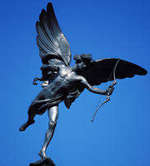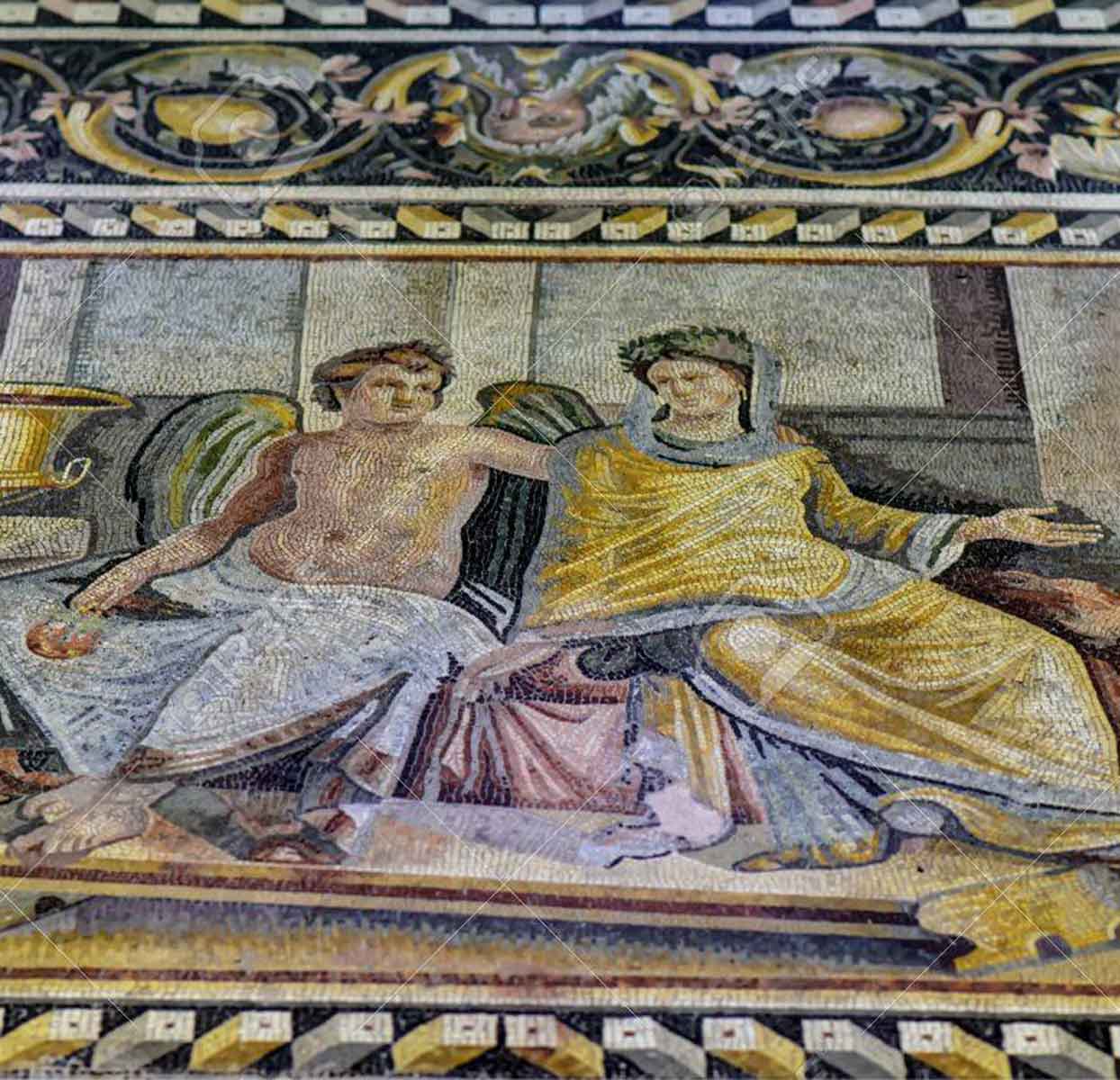
Eros
Eros – known as Cupid to the Romans – was the Greek god of sexual attraction, a constant companion of Aphrodite. Variously depicted as either a beautiful youth or a mischievous nude boy, Eros is most commonly represented with a bow and an unlimited number of arrows which he uses to overpower the reason and incite erotic feelings in any mortal or god per Aphrodite’s or his own wish. Once, though, he accidentally scraped himself with an arrow – and that’s how he fell in love with Psyche, who will later become his wife for eternity.
Parentage
There are numerous different versions of Eros’ parentage, and it seems that even Ancient Greek authors were aware of them, so some have even posited the existence of at least two different Eroses.
Eros as a Primordial Cosmic Force
The first of these is Hesiod’s Eros, a primordial being, “the most beautiful of the immortal gods,” one of the very first few deities that sprung into existence. In this story, Eros was the son of Chaos, and the brother of Gaea, Tartarus, Erebus, and Nyx. A universal cosmic force, he became Aphrodite’s companion soon after her birth, which he had previously overseen.
Eros as One of the Erotes, Children of Aphrodite and Ares
However, possibly due to the fact that Eros was constantly accompanying the goddess of love, later authors reimagined him as one of the many children of Aphrodite and Ares. In this case, there are at least three more winged love gods such as him, all of them his brothers: Anteros, Pothos, and Himeros. Together, they are often referred to as the Erotes.
Eros as the Son of Zephyrus and Iris
A less famous tradition which can be traced back to Alcaeus, one of the nine most famous Greek lyric poets, makes Eros the son of Zephyrus, the West Wind, and Iris, the messenger of the gods.
Eros in Cult
Finally, in Aristophanes’ version of the Creation – strongly influenced by the Orphic religion – Eros is born golden-winged out of an egg laid by Nyx (the Night) in Erebus (the Darkness).
Eros Portrayal · Apollo and Daphne
In Greek art, Eros was portrayed either as a beautiful youth (in the earlier days) or as a mischievous boy (in Hellenic times and later). The famous playwright Euripides is the earliest author to describe him as someone with a bow and a quiver full of unavoidable arrows, two attributes which have ever since been etched in our collective imagination.
What’s less known is that Eros’ quiver allegedly contained two different types of arrows. The first are the more famous love-kindling ones; these were sharp and gold-tipped. However, Eros was also able to use another type of blunt and lead-tipped arrows which made anyone shot by them immune to love advances.
One time, after Apollo mocked his skills, Eros proved his power by shooting the god with a gold-tipped arrow while hitting Daphne, Apollo’s love interest, with a lead-tipped one. That way, Apollo ended up pining for the wood nymph, while she remained untouched by his advances.
Eros and Psyche
One time, however, Eros got a taste of his own medicine.
Aphrodite, envious of the fact that Psyche had hundreds of suitors, ordered Eros to make the mortal girl fall in love with the ugliest creature on the planet. Eros flew down to earth to accomplish the mission, but instead of shooting Psyche, he accidentally pricked himself with his arrows.
The result?
For once, Eros was the one head over heels in love!
So, with the help of Zephyrus, the West Wind, Eros organizes secret meetings with Psyche, loving her night after night in an isolated sacred grove in the privacy of total darkness. Psyche’s jealous and somewhat curious sisters convince Psyche to find out who her secret lover is, so one night she lights a candle and discovers Eros’ identity. The god flees, feeling both betrayed and enraged.
Psyche, on the other hand, feels heartbroken and inconsolable. So, she starts wandering aimlessly and begging the gods to grant her an opportunity to win back the love of Eros. In the end, after performing a series of all but impossible tasks imposed on her by Aphrodite, she wins back both the goddess’ and Eros’ trust.
Voluptas, the goddess of sensual pleasure, will be born out of Eros’ and Psyche’s marriage.
Eros Sources
Read two different stories about the birth of the primordial Eros in Hesiod’s “Theogony” and Aristophanes’ “Birds.” The story of Eros and Psyche is told in full in one of Europe’s earliest novels, Apuleius’ “The Golden Ass.” Unsurprisingly, the debilitating effects Eros’ arrows had on mortals and gods was one of the most beloved poetic themes in Ancient Greece and Rome, and memorable descriptions can be found in numerous poems and fragments by Sappho, Alcaeus, Anacreon, Ibycus, Horace, etc.
See Also: Eros and Psyche, Psyche, Aphrodite, Anteros
Eros Video
Eros Q&A
Eros Associations
Link/Cite Eros Page
Written by: The Editors of GreekMythology.com. GreekMythology.com editors write, review and revise subject areas in which they have extensive knowledge based on their working experience or advanced studies.
For MLA style citation use: GreekMythology.com, The Editors of Website. "Eros". GreekMythology.com Website, 08 Apr. 2021, https://www.greekmythology.com/Other_Gods/Eros/eros.html. Accessed 26 April 2024.




